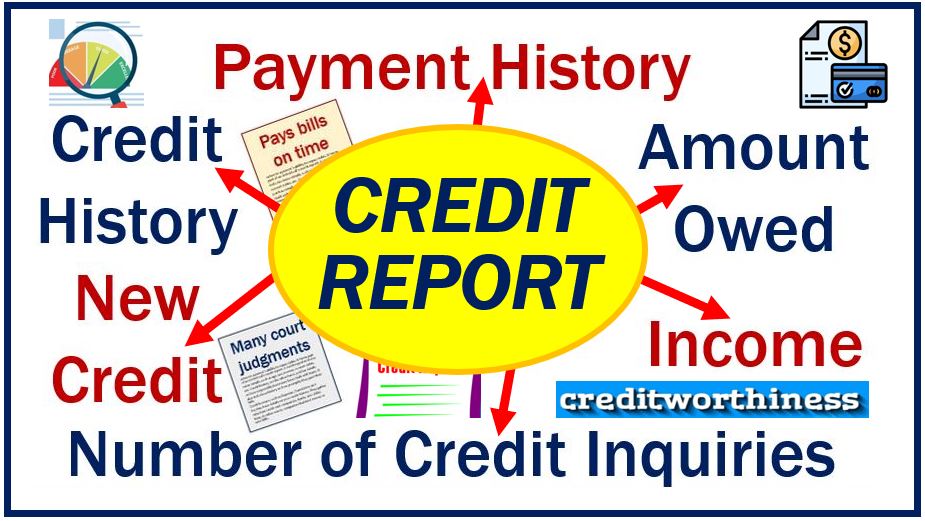When it comes to your credit score, there are a lot of ways to improve it. It may not be as glamorous, but the credit score actually has a lot to do with your ability to get a loan. Understanding how your score can affect your future can help you take control of your future.

You see, if you’re unable to obtain a loan because of a low credit score, that’s a big red flag. Even if you don’t think you’re a credit risk, a low score can still affect your ability to get a loan in the future. Here are seven easy steps that can improve your credit score in no time.
Pay Your Bills on Time
With no exaggeration, your credit score is the most important factor that determines whether or not a lender will give you a loan. Your credit score is determined by the amount of debt you owe and the time that has passed since you’ve paid your bills. The higher your credit score, the better off you will be in the long run.
If you have a bad credit score, it can be difficult to get a loan. But it’s not impossible! It all comes back to learning how to manage your credit score and pay your bills on time. If you have a history of late payments, your credit score could drop by up to 20 points. Click here to view the list of best credit repair companies that can easily help you out in this situation.
Pay Your Existing Loans and Debts
All of your current debts, including loans and credit card bills, will affect your credit score. If you fall behind on your current loans, you could lose access to refinancing options and even be required to pay back the original loan amount. It’s important to pay your existing loans and debts on time, or else your credit score could take a hit.
If you fall behind on your lender’s requirements for late payments, collections, or debts in general, it could lead to a lower credit score. A high credit score is necessary for many types of loans, like a home purchase. And a low credit score can have a significant impact on your ability to get a loan in the future.
Take Your Time Before Applying for New Credits
Credit scores take months to months to update, so if you’re thinking about applying for new credit, take your time. If you miss an important deadline, you may be denied. The credit bureaus take their time because they want to make sure all the pieces of the puzzle fall into place just right.
The credit bureaus take their time because they want to make sure all the pieces of the puzzle fall into place just right. That means there are usually some exceptions to the rule. For example, if you apply for a new credit card or a home equity loan, the credit bureau will conduct a quick background check to make sure you don’t have a credit score that is lower than what you’ve applied for.
Be Sure to Check Your Credit Reports

Your credit score is determined by a mix of factors, so it’s important to check your credit reports often. You need to make sure that none of your accounts are in default or in severe debt; otherwise, your credit score will take a hit. If you do fall behind on your bills or loans, contact your lender right away to get it settled.
It could be the difference between a smaller mortgage and your dream house. A high credit score means it’s easier for lenders to approve you for loans, like a mortgage for a home. If you have payments but a high credit score, you could end up paying more interest on your loan.
Ask for a Lower Interest Rate
This one is important for anyone who is going to be applying for a loan. If you’re going to apply for a loan and have a lower interest rate in mind, ask the lender how you can lower your interest rate. It’s important to remember that lenders have their own set of rules when it comes to interest rates.
It’s definitely not the lender’s fault if you get stuck with a higher rate than you bargained for. But they can change their mind at any time. And if they do, your rate could rise.
A lower interest rate may sound good at first, but in the long run, it may end up costing you more money. And don’t forget that if you miss a payment, your credit score will go down, too! A low-interest rate could mean a higher monthly payment in the long run, but it could save you a small amount of money now.
Only Keep Credit Cards that You Need
This one is important because a low credit score can prevent you from getting approved for certain types of loans. It could keep you from opening a credit card, for example. It could also prevent you from being able to get a certain car loan, home equity loan, or even a mortgage.
It’s important to remember that a low credit score can affect your ability to get future loans, like a mortgage, but it can also prevent you from getting a certain type of credit card, like a credit union loan or a student loan. A low credit score can affect your credit score in many ways, but one of the most important is probably how it will affect your ability to get a loan in the future. It’s better to be safe than sorry, right?
Participate in Score Boosting Programs
A low credit score can also affect your score in the long run, so it’s important to take care of your obligations now. If you’re paying your bills on time, have a paying job, and making adequate repayments on your loans, then your credit score will go up. But if you fail to pay your bills, make minimum repayments on your loans, or get a low credit score, then your credit score will go down.
A score of under 70 is considered low by credit bureaus, so even a small score boost could help you get a loan you’ve been trying for years for a home, for example. Credit score boosting programs are often free or cheap ways to improve your score. You can usually participate in them for a period of time, like every month, and get rewarded for it.
Your credit score is a key indicator of your ability to repay a loan. It’s important to make sure you are reporting your income and debts accurately, as well as paying your bills on time. You should also keep in mind that your credit score is affected by a variety of factors, so it’s important to take care of the small things that can make a big difference.
Interesting related article:
- What is a Loan?

